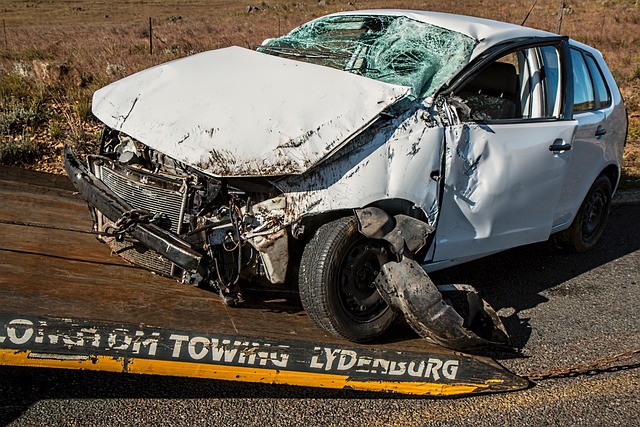Motorcycle Accident Settlements: Cover Medical Bills & Losses Fairly

Motorcycle accident settlements cover medical bills, rehabilitation, lost wages, and property damage…….
In the dynamic world of personal injury law, motorcycle accidents hold a unique place, often resulting in complex legal landscapes for victims seeking justice and fair compensation. This comprehensive article delves into the intricate realm of motorcycle accident settlements, exploring its multifaceted aspects, global implications, and the evolving strategies employed to navigate these challenging cases. By understanding the mechanisms behind these settlements, readers will gain valuable insights into the rights of motorcycle accident victims and the factors influencing their financial recoveries.
Definition: A motorcycle accident settlement refers to an out-of-court agreement between a motorcycle accident victim and the responsible party or their insurance provider, resolving legal claims arising from the incident. This process aims to provide a mutually agreeable resolution without the need for lengthy litigation.
At its core, a settlement involves several key components:
Compensation for Damages: This includes reimbursement for medical expenses, loss of wages, disability-related costs, and pain and suffering. The amount is determined by various factors such as the severity of injuries, duration of treatment, and the victim’s ability to work.
Liability Admission: The settling party acknowledges legal responsibility for the accident, which can be crucial in future insurance claims or legal actions.
Release of Liability: In exchange for the settlement amount, the victim agrees to release the responsible party from further legal obligations related to the accident.
Historically, motorcycle accidents have presented unique challenges due to the relative vulnerability of riders compared to passengers in cars. As a result, settlements in these cases have evolved to reflect the specific needs and circumstances of injured cyclists. The rise of personal injury law and consumer protection has empowered victims to seek justice, often leading to more favorable outcomes through settlement agreements.
The influence of motorcycle accident settlements extends far beyond national borders, with distinct trends and variations across different regions:
North America: The United States and Canada have well-established legal systems that favor out-of-court settlements. Insurance companies in these regions often encourage early negotiations to reduce costs and litigation time. For instance, a study by the Journal of Trial & Legal Studies revealed that motorcycle accident cases in the US settled at an average of 72% of the requested amount.
Europe: European countries exhibit varying approaches. The UK, for example, has seen a rise in “no-fault” insurance schemes, where compensation is provided independently of liability, simplifying settlement processes. In contrast, countries like Germany have stringent legal standards, often leading to more complex and prolonged settlements.
Asia Pacific: This region presents diverse scenarios due to varying legal traditions. Japan, known for its strict safety regulations, has relatively low motorcycle accident rates and swift settlement processes. In contrast, countries like India, with a high density of motorcycles, face unique challenges in traffic congestion and accident management, impacting settlement trends.
Middle East and Africa: These regions often lack comprehensive legal frameworks for motorcycle accident settlements, making them less structured and more dependent on individual negotiations. However, as these areas experience economic growth and increasing motorcycle popularity, settlement practices are evolving to meet modern demands.
The economic aspects of motorcycle accident settlements are multifaceted, with significant market dynamics at play:
Insurance Industry: Insurance companies closely monitor motorcycle accident trends, influencing their pricing strategies and settlement offers. They aim to balance fair compensation for victims while managing risks and costs. For instance, in regions with a high density of motorcycle accidents, insurers may offer lower initial settlements due to the increased likelihood of future claims.
Market Demand and Supply: The demand for motorcycle insurance varies globally, affecting settlement patterns. Countries with higher motorcycle ownership rates often experience more frequent accidents, leading to higher settlement expectations among victims.
Economic Impact: Motorcycle accident settlements contribute to economic systems by providing financial support to injured parties, stimulating local economies through legal fees and medical services, and influencing insurance market behaviors.
Technology has revolutionized the landscape of motorcycle accident settlements, offering innovative solutions to streamline processes and enhance efficiency:
Digital Document Management: Online platforms facilitate the secure sharing and storage of legal documents, enabling faster communication between insurers, lawyers, and victims. This reduces paper waste and accelerates settlement negotiations.
Data Analytics for Risk Assessment: Advanced analytics help insurers predict accident patterns, identify high-risk areas, and tailor insurance policies accordingly. Improved risk assessment leads to more accurate settlement offers and better outcomes for both parties.
Telemedicine and Remote Settlements: The COVID-19 pandemic accelerated the adoption of remote medical consultations, allowing victims to receive evaluations and settlements without physical interactions. This trend is expected to continue, making settlements more accessible and convenient.
Artificial Intelligence (AI): AI-powered tools assist in legal research, contract analysis, and even predictive modeling for settlement outcomes. These technologies enhance efficiency and provide valuable insights for both insurance providers and victims’ attorneys.
The development of motorcycle accident settlements is significantly influenced by policies and regulations that vary across jurisdictions:
No-Fault Laws: Some countries, like Australia and Sweden, have implemented no-fault insurance systems, where victims receive compensation regardless of liability. This simplifies settlement processes but may result in lower payouts compared to fault-based systems.
Liability Laws and Insurance Requirements: Strict liability laws hold all parties responsible for accidents, ensuring fair compensation. Countries like Germany and France have such regulations, leading to more comprehensive settlements. Many regions mandate motorcycle insurance, which plays a crucial role in facilitating prompt settlements.
Consumer Protection: Consumer protection laws empower victims by setting guidelines for fair settlement practices, preventing insurers from exploiting vulnerable individuals. These laws vary globally, with some regions having robust protections and others lacking sufficient regulations.
Despite its benefits, the motorcycle accident settlements process faces several challenges and criticisms:
Undercompensation: Critics argue that insurance companies often offer low initial settlements, especially in regions with a history of motorcycle accident claims. This may force victims to accept inadequate compensation or resort to prolonged litigation.
Complex Medical Claims: Proving the extent and long-term effects of injuries can be challenging, particularly in cases involving traumatic brain injuries or chronic pain conditions. Medical experts play a vital role in these settlements, but their opinions may vary, leading to disputes.
Lack of Standardization: The absence of standardized settlement practices across regions makes it difficult for victims to understand their rights and negotiate effectively. This inconsistency can result in unfair outcomes.
To address these issues, several strategies can be employed:
Strengthening Consumer Protection Laws: Governments should enact or enhance regulations that protect motorcycle accident victims’ rights, ensuring fair settlements and transparent practices.
Education and Awareness: Promoting awareness among riders and insurance providers about the importance of prompt and fair settlements can foster a culture of responsibility and understanding.
Mediation and Alternative Dispute Resolution (ADR): Encouraging mediation and ADR methods can provide efficient, cost-effective alternatives to litigation, offering mutually agreeable solutions.
In the UK, the introduction of a no-fault insurance system has led to positive outcomes for motorcycle accident victims. In 2020, Sarah, a motorcyclist involved in a collision, received compensation within three months through a government-backed scheme. Her injuries required extensive rehabilitation, and her lawyer worked closely with the insurer to secure an above-average settlement of £120,000, ensuring financial security for her future medical needs.
Australia’s digital transformation in personal injury claims has resulted in efficient settlements. Mark, a rider from Melbourne, was involved in an accident and used a dedicated mobile app to document his injuries and share evidence with his insurer. The process streamlined the claim, leading to a swift settlement of A$75,000 within 45 days, allowing Mark to focus on recovery.
In a complex case in Toronto, Jennifer, a motorcyclist with severe injuries, faced challenges proving her long-term medical needs. Her attorneys collaborated with leading experts, resulting in a settlement of CA$1.2 million. This success demonstrated the importance of robust legal representation and medical expertise in navigating intricate claims.
The motorcycle accident settlements landscape is poised for growth and transformation, driven by several emerging trends:
Telemedicine and Remote Settlements: As technology advances, remote consultations and settlements will become more prevalent, particularly in regions with limited legal resources.
AI-Assisted Settlements: AI will play a larger role in legal research, contract analysis, and predictive modeling, enhancing efficiency and accuracy in settlement negotiations.
Data-Driven Insurance Policies: Insurers will increasingly utilize data analytics to offer personalized policies, catering to individual risk profiles and accident patterns.
International Settlement Networks: Global settlements may become more common as motorcycle tourism grows, requiring standardized international frameworks for efficient cross-border claim management.
Motorcycle accident settlements are a dynamic and evolving aspect of personal injury law, reflecting the changing legal, economic, and technological landscapes. As riders continue to embrace motorcycles as a mode of transport worldwide, understanding and improving settlement practices become increasingly critical.
By addressing challenges, embracing technology, and advocating for robust policies, the motorcycle accident settlement process can ensure that victims receive fair compensation while insurers maintain sustainable risk management strategies. The future holds immense potential for innovation, efficiency, and positive outcomes in this complex yet essential area of law.
Q: How do I know if I have a valid claim for a motorcycle accident settlement?
A: To determine validity, assess your case by evaluating the circumstances leading to the accident, the severity of injuries, and any breach of safety protocols by involved parties. Legal consultation is crucial for a comprehensive evaluation.
Q: Can I negotiate with insurance companies directly?
A: Direct negotiation is possible but can be challenging. Many riders benefit from legal representation to ensure their rights are protected and settlements are fair.
Q: What if the insurance company offers a low settlement amount?
A: If the offer is inadequate, consult your attorney to explore options. You may have valid arguments for an increased settlement, especially if medical evidence supports more extensive injuries or long-term care needs.
Q: How can technology improve my settlement chances?
A: Technology aids in documenting and presenting claims efficiently. Digital tools can help organize medical records, witness statements, and expert opinions, enhancing the overall quality of your case.

Motorcycle accident settlements cover medical bills, rehabilitation, lost wages, and property damage…….

Motorcycle accident settlements depend on fault determination, injury severity, and insurance covera…….

Motorcycle accident settlements are crucial for financial recovery, covering medical bills, rehabili…….

Motorcycle accident settlements are crucial for compensating individuals for medical bills, pain and…….

Motorcycle accident settlements are complex and substantial due to severe injuries and financial los…….

Motorcycle accident settlements vary based on injury severity, influenced by medical expenses, lost…….

Motorcycle accident settlements vary with injury severity, driven by medical costs, lifestyle change…….

Motorcycle accident settlements cover immediate medical bills, long-term care costs, emotional distr…….

Motorcycle accidents often involve complex claims and multiple parties, making professional legal as…….

After a motorcycle accident, meticulous documentation of evidence is crucial for favorable motorcycl…….